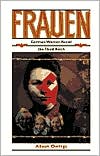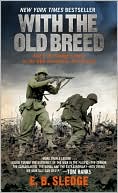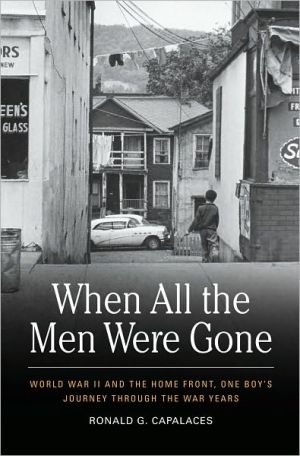Frauen: German Women Recall the Third Reich
What were the women of Germany doing during the Third Reich? What were they thinking? And what do they have to say a half century later? In Frauen we hear their voices - most for the first time. Alison Owings interviewed and here records the words of twenty-nine German women who were there: Working for the Resistance. Joining the Nazi Party. Outsmarting the Gestapo. Disliking a Jewish neighbor. Hiding a Jewish friend. Witnessing "Kristallnacht." Witnessing the firebombing of Dresden. Shooting...
Search in google:
What were the women of Germany doing during the Third Reich? What were they thinking? And what do they have to say a half century later? In Frauen we hear their voices - most for the first time. Alison Owings interviewed and here records the words of twenty-nine German women who were there: Working for the Resistance. Joining the Nazi Party. Outsmarting the Gestapo. Disliking a Jewish neighbor. Hiding a Jewish friend. Witnessing "Kristallnacht." Witnessing the firebombing of Dresden. Shooting at Allied planes. Welcoming Allied troops. Being a prisoner. And being a guard. The women recall their own and others' enthusiasm, doubt, fear, fury, cowardice, guilt, and anguish. Alison Owings, in her pursuit of such memories, was invited into the homes of these women. Because she is neither Jewish nor German, and because she speaks fluent colloquial German, many of the women she interviewed felt comfortable enough with her to unlock the past. What they have to say will surprise Americans, just as it surprised the women themselves. Not since Marcel Ophuls's controversial film The Sorrow and the Pity have we been on such intimate terms with "the enemy." In this case, the story is that of the women, those who did not make policy but who lived with its effects and witnessed its results. What they did and did not do is not just a reflection on them and their country - it also leads us to question what actions we might have taken in their place. The interviews do not allow for easy, smug answers. Publishers Weekly A vivid picture of Germany under the Nazis emerges from this collection of unsettling interviews conducted by freelance TV writer Owings with 29 women of diverse backgrounds, both Aryan and Jewish. Among the women whose lives in Germany's war-torn homefront are chronicled are the widow of a resistance leader and the wife of an SS guard, who refers to her husband's work in the Ravensbrook and Buchenwald ``manufacturing plants.'' Not only did Hitler attract the young but, according to one supporter, ``he understood how to fascinate women.'' Some of these women claim that they privately protested mistreatment of Jews and prisoners and risked their lives to assist them. Only one non-Jewish woman, however, admits to ``hearing'' that Jews were gassed. (Oct.)
PrefaceIntroductionA Note about Language, Translation, and TruthIdealism and Chasm1Motherhood Times Ten, and Food to Spare17A Matter of Fate32National Socialism and Christianity54Retrospective Guilt68The History Lesson83An "Exotic" Past99A Cosmopolitan View of the World116Learning How Communism Works137Solidarity and Survival155"We Did Love Our Fuhrer, Really!"172Before, During, and After the Firebombing185The Ambivalence of Avoidance197From the Emperor to a Mud Hole214Rural Perspectives231A Modest Woman of the Resistance245The Schisms of a "Flakwaffenhelferin"266On Megalomaniacs and Little People284Dissident Clergy and Dissident Actions299A Job in Its Own Category313A Child Not of the Times342"A Very Unpolitical Woman"357"I Was Alone. And I Had the Whole City Against Me."366"I Am Never Dishonest."387Life as a Cabaret412A Natural Matter of Friendship431Talking about Silence451Conclusion468Glossary477Acknowledgments481Index485
\ Publishers Weekly - Publisher's Weekly\ A vivid picture of Germany under the Nazis emerges from this collection of unsettling interviews conducted by freelance TV writer Owings with 29 women of diverse backgrounds, both Aryan and Jewish. Among the women whose lives in Germany's war-torn homefront are chronicled are the widow of a resistance leader and the wife of an SS guard, who refers to her husband's work in the Ravensbrook and Buchenwald ``manufacturing plants.'' Not only did Hitler attract the young but, according to one supporter, ``he understood how to fascinate women.'' Some of these women claim that they privately protested mistreatment of Jews and prisoners and risked their lives to assist them. Only one non-Jewish woman, however, admits to ``hearing'' that Jews were gassed. (Oct.)\ \ \ \ \ Library JournalOwings, a freelance television writer who is neither a German nor a Jew, has compiled and edited a groundbreaking set of oral histories. She interviews women from many spectrums of the Third Reich: Germans, Jews, individuals of ``mixed'' parentage, a countess, a camp guard, women who hid Jews, Nazi supporters, Communists, and other women who witnessed and participated in everyday and extraordinary events. Owings has tried, as much as possible, to quote her interviewees directly yet still manages to create an even and engaging text. This volume is an excellent companion to Claudia Koonz's Mothers in the Fatherland: Women, Family Life, and Nazi Ideology , 1919-1945 ( LJ 11/1/86). Highly recommended.-- Jenny Presnell, Miami Univ. Libs., Oxford, Ohio\ \ \ Kirkus ReviewsPowerful testimony from 29 German women survivors of the Third Reich that provides not only a stunning portrait of life on the home front but also insights into a society that spawned both Hitler and the Holocaust. Wanting to find out why German women "did not behave like the humane peacemakers, the nurturers that people believe women really are, [and] stop the Nazis," Owings, a TV news-writer based in California, visited and revisited her subjects over a period of years, usually in their homes, where she was cordially received. Those interviewed include a former concentration-camp guard; the widow of a Resistance hero; a lifelong Communist residing in what was then East Germany; and an unrepentant Nazi schoolteacher. Also offering testimony are Lotte Muller, a plumber, who was sent to Ravensbruck—the notorious women's camp—because of her Communist connections; former countess Maria von Lingen, who always thought of herself as more a European than a German; Margret Blersch, a physician who helped save people the "Nazis would have murdered;" and Erna Dubnak, a low-paid worker who hid her "dear friend" Hilda Naumann, a Jew, throughout the war. During the war, most of the women endured great hardships as bombing raids intensified, food grew scarce, and the Russians advanced. The collapse of the German economy and the climate of fear that the Nazis created initially ensured the support of many of Owens's subjects—but according to Freya von Moltke, whose husband was executed by the Nazis, even those who didn't support Hitler carry a burden of guilt: "People who lived through the Nazi time, and who still live, who did not lose their lives because they were opposed, all hadto make compromises." Oral history at its best, and a much-needed record of WW II German women, who "faced the day-to-day consequences of the Third Reich with impudence or despair, hesitation or hope, with shame, and with blinders." (First printing of 7,500)\ \








